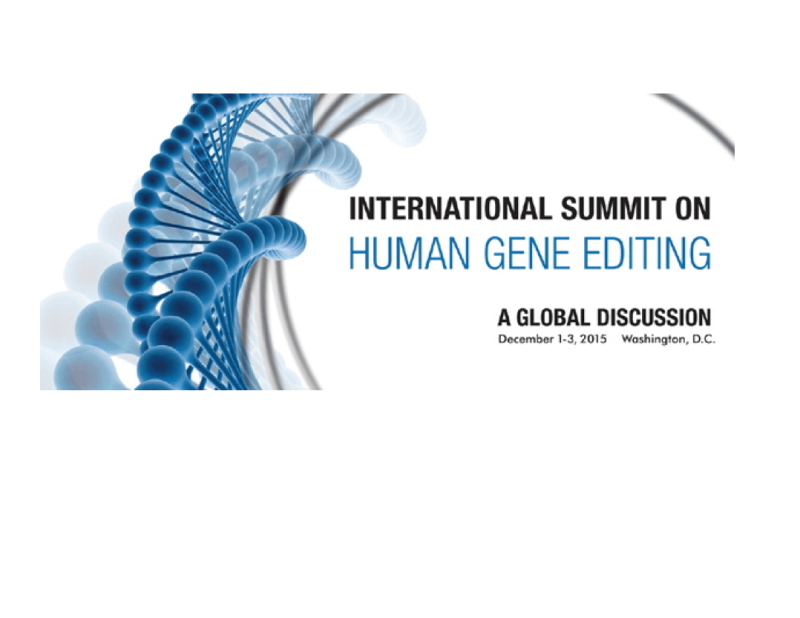The GLP aggregated and excerpted this blog/article to reflect the diversity of news, opinion and analysis.
An international group of scientists meeting in Washington called for what would, in effect, be a moratorium on making inheritable changes to the human genome. The group said it would be “irresponsible to proceed” until the risks could be better assessed and until there was “broad societal consensus about the appropriateness” of any proposed change.
The group also held open the possibility for such work to proceed at some point in the future by saying that as knowledge advances, “the clinical use of germline editing should be revisited on a regular basis.”
The meeting was convened by the National Academy of Sciences of the United States, the Institute of Medicine, the Chinese Academy of Sciences and the Royal Society of London. The academies have no regulatory power, but their moral authority on this issue seems very likely to be accepted by scientists in most or all countries. Similar restraints proposed in 1975 on an earlier form of gene manipulation by an international scientific meeting in California were observed by the world’s scientists.
The participation of the Chinese Academy of Sciences is a notable coup for the organizers of the meeting, led by David Baltimore, former president of the California Institute of Technology, given that earlier in the year Chinese scientists seemed to be racing ahead independently toward clinical alterations to the human germline.
Read full, original post: Scientists Place Moratorium on Edits to Human Genome That Could Be Inherited































